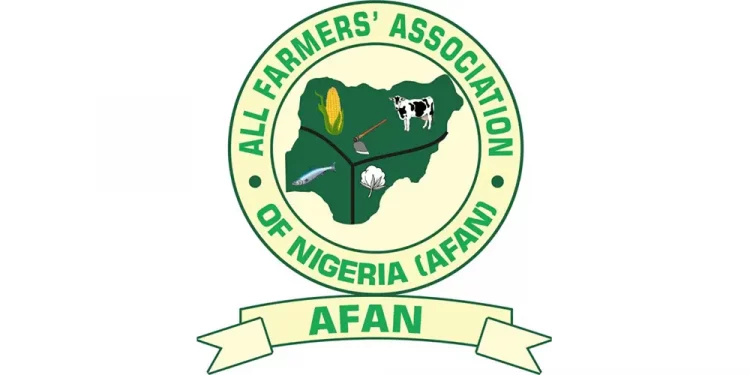The All Farmers Association of Nigeria (AFAN) has raised serious concerns over the country’s food system, warning that insecurity, inflation, and climate change could exacerbate food insecurity if urgent interventions are not implemented.
According to Kabir Kebram, National President of AFAN, insecurity in key food-producing areas, the declining purchasing power of the Naira following subsidy removals, and adverse climate effects are among the biggest challenges affecting agricultural productivity in Nigeria.
“Our food system is impaired for many reasons. Insecurity is crippling farmers, especially in the food basket areas. The purchasing power of our Naira has dropped since the removal of subsidies, and the effects of climate change are adding to the problem,” Kebram said. He stressed that these factors collectively threaten food sufficiency and must be addressed immediately.
Kebram emphasised the importance of strong policy implementation and direct support for smallholder farmers, who form the backbone of the nation’s food production. He identified access to credit, subsidies, mechanisation, and climate-smart production practices as essential to optimise output and strengthen the agricultural sector.
“Optimising production requires both short-term and long-term strategies to prepare the nation for its rapidly growing population,” he noted. He added that the government’s role is not to operate farms directly but to create an enabling environment where smallholder farmers can thrive, adopt modern technologies, and access markets.
Highlighting the economic potential, Kebram pointed out that Nigeria’s large population presents significant opportunities for agribusiness, food processing, and value-chain development. “With a large population, demand for food is high. Entrepreneurs can seize opportunities in production, processing, and distribution, even if they are not directly farming themselves,” he said.
AFAN’s president stressed that supporting smallholder farmers is not only a food security measure but also a job creation strategy. As mechanisation increases, larger-scale operations will emerge, opening avenues for young people and MSMEs in processing, packaging, storage, and marketing, contributing to rural economic growth.
With over 31.8 million Nigerians experiencing acute food insecurity, Kebram’s warning underscores the urgent need for a holistic approach that integrates smallholder empowerment, access to finance, mechanisation, and agribusiness opportunities. He urged policymakers, private sector actors, and development partners to prioritise support for farmers, ensuring Nigeria’s food system becomes more resilient, productive, and profitable.










